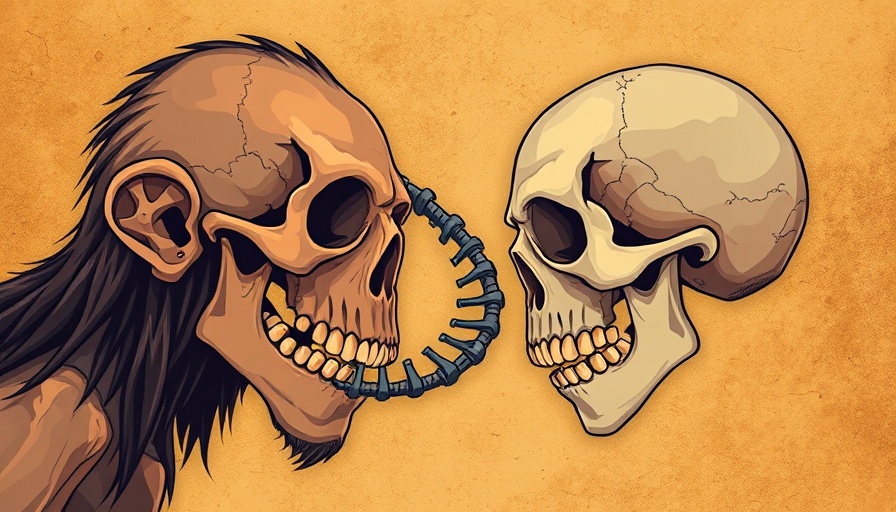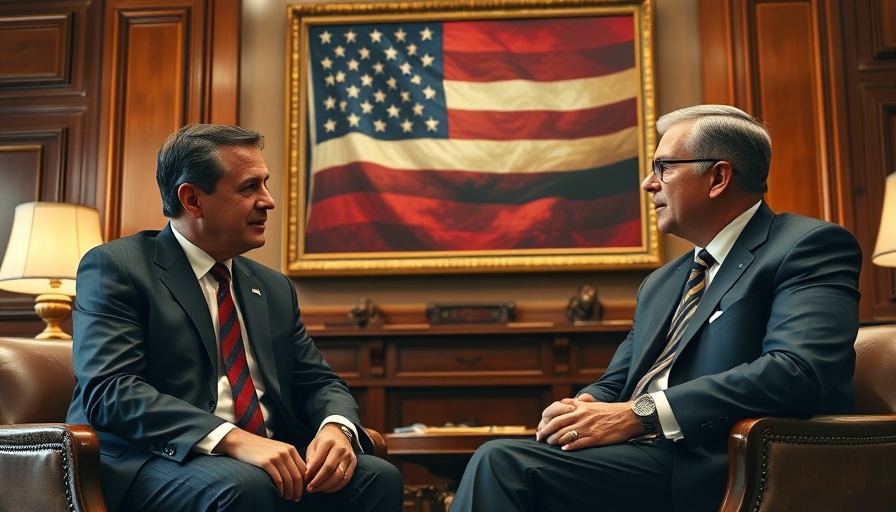
Revealing a Hidden Legacy: The Intersection of Human and Neanderthal Histories
Imagine a world where our evolutionary narrative is more intricate than mere lines on a family tree. A groundbreaking study from Princeton University has generated ripples in the scientific community and beyond, establishing that modern humans and Neanderthals exchanged genes for over 200,000 years. This research not only reshapes our understanding of ancient interactions but fundamentally changes how we perceive our ancestry.
The Science Behind the Discovery
The research team, spearheaded by geneticists Joshua Akey and Liming Li, employed AI-powered genetic tools such as IBDmix, allowing for an unprecedented look at the genetic material of early humans, Neanderthals, and Denisovans. By analyzing this genetic data, researchers uncovered multiple waves of interbreeding, confirming that humans did not merely brush shoulders with Neanderthals but merged with them.
They discovered initial contact around 200,000 to 250,000 years ago, with significant subsequent interactions occurring approximately 100,000 to 120,000 years ago, and a more pronounced one between 50,000 and 60,000 years ago. This information is crucial for understanding how diverse human ancestry truly is; it pushes back against the traditional perspectives that often oversimplified these relationships.
Revising Perceptions of Neanderthals
For centuries, Neanderthals have been depicted as brutish and primitive beings, and this stereotype has persisted through popular culture. However, the latest revelations highlight their sophistication. Neanderthals were skilled hunters, adept tool makers, and capable of complex social strategies, as indicated by their ability to treat injuries amongst themselves. Such findings challenge the view of Neanderthals as mere brutish ancestors and instead paint them as vital contributors to our shared heritage.
Implications for Understanding Humanity
The revelation that Neanderthals interbred with early human populations signifies that their essence persists in our DNA today. Scientists have noted that the traits absorbed from Neanderthals may influence modern human characteristics ranging from skin tone to susceptibility to certain diseases. This enriched genetic diversity suggests that the intersection between modern humans and their ancient relatives is not only relevant for anthropologists—it carries implications for contemporary health and wellness.
This complex relationship adds a new layer to how we define ourselves as humans. The merging of our ancestors with Neanderthals demands a reevaluation of what it means to be distinctly 'human.' It raises exciting questions: What traits might we attribute to our Neanderthal lineage? How might understanding our ancestry impact our sense of identity?
Broader Consequences in Health and Tech Innovations
This study's implications reach beyond anthropology, stretching into realms such as health tech and personal wellness. By comprehending our full genetic background, medical professionals can utilize insights from our shared history to better understand genetic predispositions to diseases. This intersection of ancient heritage and modern technology aligns perfectly with the innovations often embraced by today's CEOs and marketing managers.
Companies in tech-driven industries must recognize the potential for integrating these cutting-edge insights into their strategies. The fusion of AI with genetic research exemplifies how emerging technologies can enhance our understanding of human biology, directly impacting fields such as personalized medicine and health tracking.
What Lies Ahead for Genetic Research?
As researchers continue to unravel the layers of human history, the future of genetic studies looks promising. The methodologies used in the Princeton study may pave the way for further discoveries relating to the migration patterns of early humans and how genetic traits have evolved over millennia.
Expect to see more studies leveraging AI-driven techniques to examine not only human evolution but also how these findings intersect with contemporary issues like health, climate adaptation, and social structures. The combination of modern technology and genetic research offers a treasure trove of opportunities for CEOs and business professionals looking to align their businesses with cutting-edge developments.
As the landscape of human genetics continues to expand, our understanding of ourselves will inevitably deepen, inviting everyone—from business professionals to health advocates—to engage with this narrative of shared ancestry and collective evolution. This is truly a collective journey into the depth of what it means to be human.
 Add Row
Add Row  Add
Add 




 Add Row
Add Row  Add
Add 

Write A Comment